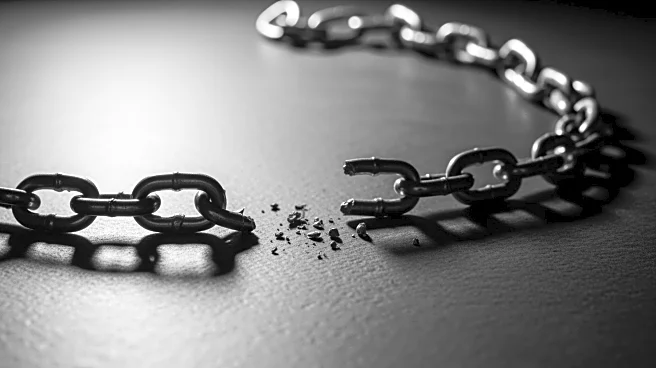What's Happening?
On September 5, the Lebanese Armed Forces presented the government with a plan for disarming Hezbollah in four phases based on location. The plan targets areas south of the Litani River, from the Litani to the Awali River, Beirut and its suburbs, and the Beqa
Valley region. Although the government welcomed the plan, its details remain confidential, and it is unclear when the LAF is supposed to complete the mission. The plan's lack of a timeline is problematic, and the army was asked to submit monthly reports. The purpose of this ambiguity was to avoid a clash with Hezbollah and its Shia political partner, the Amal Party.
Why It's Important?
The disarmament plan is crucial for Lebanon's stability, as leaving Hezbollah well-armed risks inviting another war with Israel. The United States and its partners should make clear that the plan's vagueness is unacceptable. The LAF's ability to confront Hezbollah is more capable than ever, but political and sectarian dynamics complicate the prospect. Support for the government's institutional reform efforts and postwar reconstruction could be conditioned on disarmament progress. The more Lebanon fulfills its plan to seize Hezbollah's weapons, the more financial, military, and technocratic support it will receive.
What's Next?
The United States should push Lebanese officials to state an agreed deadline publicly and clearly. U.S. assistance could be conditioned on disarmament progress, incentivizing the LAF to take risks in confronting Hezbollah. Additional U.S. sanctions could be a useful pressure tool, targeting individuals undermining disarmament. Pressuring political figures could be productive as the May 2026 parliamentary election approaches. Empowering Shia political alternatives is vital to isolating Hezbollah and its weapons from the next government.
Beyond the Headlines
The fears of conflict with Hezbollah and wider civil war are valid, but the LAF has a record of successfully confronting armed groups. Treating Sunni and Shia terrorism equally is imperative given the rise of sectarian tensions in Lebanon and the Middle East. The election is a critical battleground for containing Hezbollah, and empowering Shia political alternatives is vital.
















